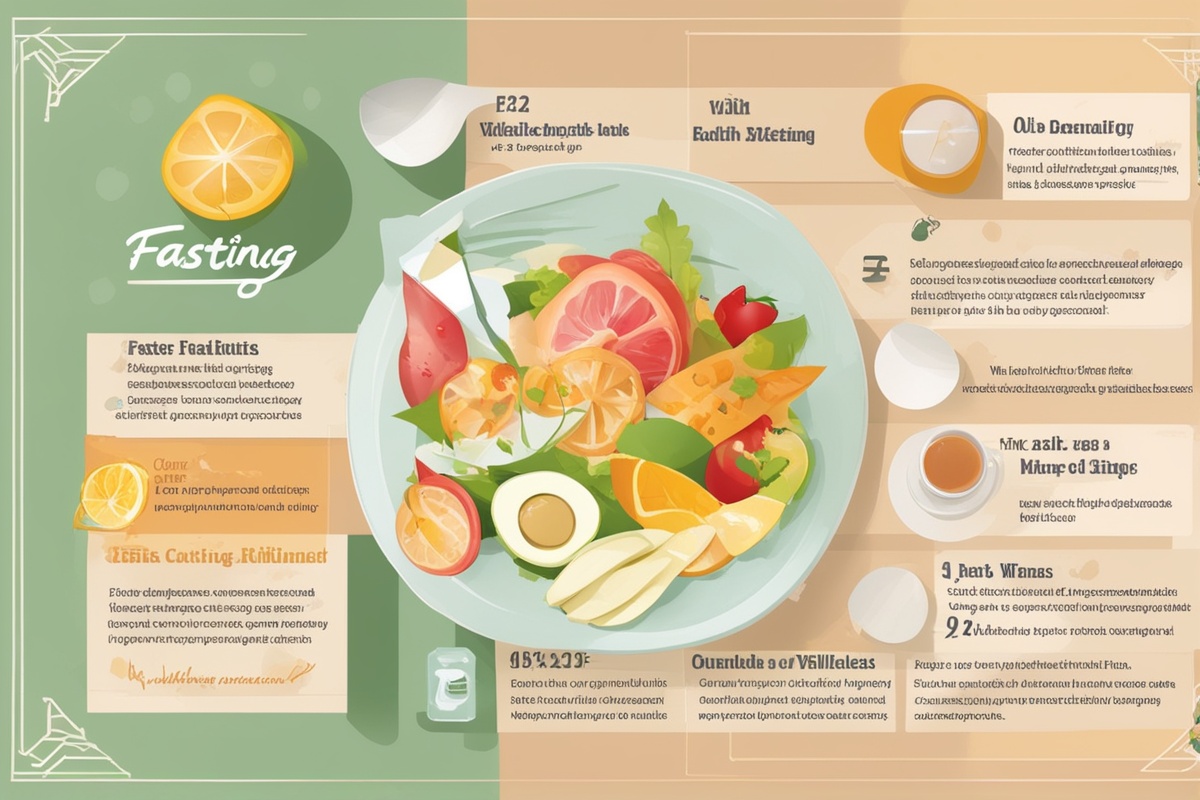Welcome to a deep dive into the transformative world of Fasting Benefits. This practice, rooted in ancient traditions and backed by modern science, offers a powerful way to enhance your physical and mental well-being. Whether you’re new to fasting or a seasoned practitioner, understanding how this approach can improve your life is essential. In this post, we’ll explore the numerous advantages fasting brings to health, energy, and overall wellness, providing actionable insights to help you get started or refine your routine.
Why Fasting Boosts Health
Fasting has gained significant attention in recent years for its remarkable impact on overall health. When you abstain from food for a set period, your body shifts into a state of repair and regeneration. One of the key mechanisms behind this is autophagy, a process where cells clean out damaged components, promoting longevity and reducing the risk of chronic diseases [1]. Additionally, fasting can improve insulin sensitivity, which helps regulate blood sugar levels and may lower the risk of type 2 diabetes. For those curious about integrating this into their routine, start with shorter fasts, like a 12-hour overnight fast, and gradually increase the duration as your body adjusts. To learn more about structured approaches, check out Explore Advanced Fasting Protocols.
Advantages of Intermittent Fasting
Intermittent fasting, a popular method within the realm of fasting, involves cycling between periods of eating and abstaining. This approach offers numerous perks, particularly for weight management and metabolic health. By limiting your eating window—say, to 8 hours a day—your body has more time to burn stored fat for energy, potentially aiding in weight loss [2]. Beyond physical benefits, intermittent fasting may also enhance brain function by increasing the production of brain-derived neurotrophic factor (BDNF), a protein linked to improved memory and learning. Curious about how fasting impacts mental clarity? Dive into Fasting and Brain Health Insights. To start, try the 16:8 method, fasting for 16 hours and eating during an 8-hour window, and adjust based on how your body responds.
- Supports weight loss by reducing calorie intake naturally.
- Enhances metabolic flexibility, helping the body switch between energy sources.
- Improves heart health by lowering blood pressure and cholesterol levels.
- Boosts mental clarity through increased BDNF production.
How Fasting Enhances Wellness
What are the broader impacts of Fasting Benefits on overall wellness? This practice goes beyond physical health, touching on mental and emotional well-being as well. Fasting can reduce inflammation in the body, a key driver of many chronic conditions, by lowering levels of pro-inflammatory markers [3]. It also encourages mindfulness, as you become more attuned to your body’s hunger and fullness cues. For those dealing with stress, fasting may lower cortisol levels, promoting a sense of calm. To enhance your wellness through fasting, pair it with hydration and light activity like walking during fasting periods. Interested in how fasting supports specific organs? Read more at Fasting for Liver Health.
Perks of a Fasting Lifestyle
Adopting a fasting lifestyle offers a range of long-term advantages that can transform your daily life. Unlike short-term diets, fasting can be a sustainable practice when tailored to your needs. It often leads to improved digestion, as the gut gets a break from constant food processing, potentially reducing bloating and discomfort [4]. Additionally, fasting fosters discipline and self-control, which can spill over into other areas of life, like productivity or financial habits. Imagine discovering a renewed sense of focus after a few weeks of consistent fasting—many report feeling sharper and more present. To make fasting a lifestyle, experiment with different methods, such as alternate-day fasting or the 5:2 approach (eating normally five days a week and restricting calories on two), and find what suits your schedule. For deeper insights into fasting’s impact on specific health aspects, explore Benefits of Fasting for Liver Wellness.
Fasting for Better Energy
One of the most celebrated aspects of Fasting Benefits is the surge in energy many experience. While it may seem counterintuitive to gain energy by not eating, fasting allows your body to tap into stored reserves, like glycogen and fat, for fuel. This process, known as ketosis, often results in a steady energy supply without the crashes associated with sugar-heavy diets [5]. Moreover, fasting can improve mitochondrial function—the powerhouses of your cells—leading to more efficient energy production. To maximize energy during fasting, ensure proper hydration and electrolyte balance by sipping water with a pinch of salt or consuming herbal teas. Curious about the historical roots of this practice? Learn more at Roots of Religious Fasting Customs.
- Reduces energy fluctuations by stabilizing blood sugar levels.
- Promotes ketosis, providing a consistent energy source from fat stores.
- Enhances mitochondrial efficiency for better cellular energy output.
Gains from Periodic Abstinence
Periodic abstinence from food, whether through short daily fasts or longer multi-day fasts, yields unique rewards for both body and mind. This practice can reset your relationship with food, helping break cycles of overeating or emotional eating. Physically, periodic fasting supports detoxification processes by giving the liver and kidneys time to process waste more effectively [6]. It can also improve immune function by reducing oxidative stress and promoting the regeneration of immune cells. Imagine finding a deeper appreciation for meals after a period of abstinence—fasting often heightens the sensory experience of eating. To try periodic abstinence, start with a 24-hour fast once a month, ensuring you break the fast with nutrient-dense foods like vegetables and lean proteins. What are the long-term effects of such practices? They often include sustained vitality and a stronger immune system, making this a worthwhile habit to explore.
This content is for informational purposes only.
References
- [1] Study on Autophagy and Fasting, Journal of Cellular Biology, 2023
- [2] Research on Intermittent Fasting and Weight Loss, Nutrition Reviews, 2022
- [3] Article on Fasting and Inflammation, Health Science Journal, 2021
- [4] Insights on Fasting and Digestive Health, Gut Health Magazine, 2023
- [5] Guide to Ketosis and Energy During Fasting, Metabolic Research, 2022
- [6] Study on Fasting and Detoxification, Journal of Nutritional Science, 2020



